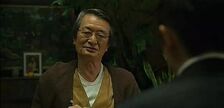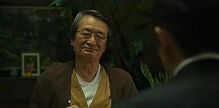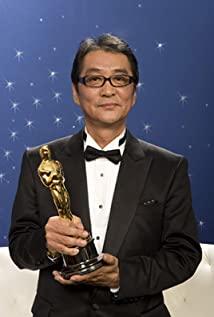This is a film about how to respect life and death. The protagonist Dawu Kobayashi was originally a cellist in an orchestra in Tokyo. He wanted to achieve a career, but after 4 months of orchestral performance, he got the bad news of the "dissolution of the orchestra" and the high debt to buy musical instruments. . As a last resort, Dawu and his wife Meixiang returned to their hometown and lived a poor life. Soon, under the misdirection of an advertisement with words such as "no age limit, high salary guarantee, billing according to actual working hours, travel assistant, NK agent", he did not know the truth and became a special agent to send the dead to the paradise. Enter the mortuary. From pretending to be the dead to be filmed in the DV guide, to the first close encounter with the dead - an old lady living alone who has been rotten after two weeks of death. His life fell from the top of his life to a tragic trough. He returned home with a tired body every day. Even when he saw the meat cooked by his wife at the dinner table, he would vomit. Moreover, because it was difficult to talk about Meixiang, he could only be alone at first. Struggling in pain... But gradually, under the guidance of the eccentric and conscientious president Sasaki, he gradually fell in love with this special job and realized that every life has its own unique value. Such a "death ceremony" can satisfy the wishes of the deceased, buffer the grief of the living for the passing of the deceased, and leave the last "beautiful" memory for the family of the deceased - this is the real job of this job. where the meaning lies. This is a movie with positive meaning, although it doesn't talk about religion, it also makes people feel as peaceful and holy as religion. Watching the mortuary with a serious and serene expression, strictly following specific procedures, and religiously bathing, dressing, and putting on makeup on the deceased, makes one feel that death is not scary—it is not going back, but leaving. Perhaps, the work of burial is meaningless to the deceased, but only gives the living the only chance to release their unspeakable emotions. Since people think that life is as gorgeous as summer flowers, then death should be as quiet and beautiful as autumn leaves. Therefore, the burial ceremony is the final and most important respect expressed by the living to the deceased. It is precisely because of this understanding that the burial master can always win people's respect and respect for the industry at the last moment with his respect for the deceased. change. The tone of the whole film is elegant, melancholy, quiet, and restrained - the light yellow grass, the silver-gray forest, the gurgling water, the vast snow-capped mountains, with a typical Japanese aesthetic, the plot and dialogue are sometimes heavy and make people tearful. ; Sometimes lighthearted and humorous, it can not help but set off incisively and vividly. In the vast majority of films, death is often shown as the result of blood and violence. Only this film can make people think and feel death seriously, but also learn from it. The inspiration of life and the reverence for life are moved from the depths of the heart, not just grief and pain. Finally, I would like to end by quoting a meaningful quote from the film: "Reviving the already icy corpse, granting it eternal beauty. That is accurate, calm, a supreme love. Farewell to the dead at the last, quiet Earth, that every move is so beautiful...".
View more about Departures reviews











